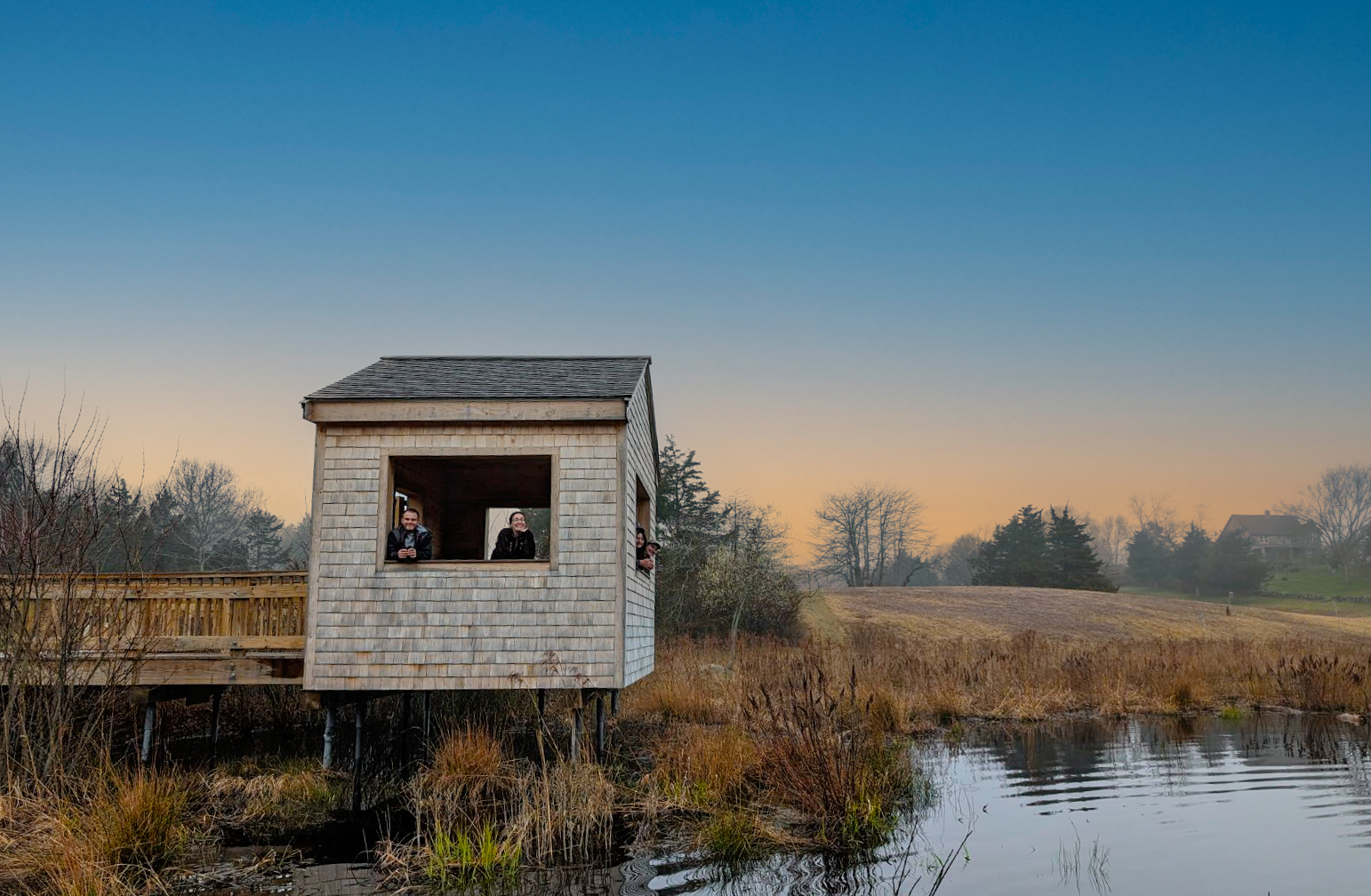The world is projected to have nine billion inhabitants by 2050 and the farms that will feed this rapidly growing population are more important than ever.
“We will have to produce as much food in the next 100 years as we’ve produced in the last 8,000 years,” said Andy Whitman, director of Manomet’s Natural Capital Initiative, during a Maine public radio interview last month.
In the face of this increasing demand, however, 21st century farmers are challenged by an unpredictable weather future of milder winters and hotter summers, an earlier spring, unpredictable rainfall and a pollinator shortage. Manomet scientists are working to make global agriculture more sustainable and resilient in the face of climate change.
At the same time, there is a farming operation experiencing many of the same issues right at Manomet’s headquarters in southeastern Massachusetts.
The Holmes Farm is located at the Manomet Center’s headquarters in Plymouth. For the last three years, Manomet has licensed Jennifer Friedrich to farm the land and restore the property’s cranberry bogs. Friedrich has more than 10 years of farming experience and an extensive background working with cranberries.
Friedrich is hesitant to connect any single weather event to climate change, but she said that she has “already seen the effects of climate change” in the time that she has been farming.
To make the Holmes Farm cranberry bogs more resilient, she planted 70,000 “Scarlet Knight” variety cranberry vines in the newly renovated bogs. This variety, created at Rutgers University, was developed to be more resilient in a warming climate, resist disease, ripen early, and keep fresh for an extended time.
“Last winter we did not have a hard freeze at all, which resulted in increased disease pressure in the fields,” Friedrich said. She also connected the mild winter to “a total crop loss on the blueberries.”
Friedrich said the new vines are part of a comprehensive climate change approach that also involves re-using water resources and minimized water withdrawal.
The new cranberry bogs will be maintained for the next two years as the vines grow out. The plants are expected to begin producing in 2015. According to Friedrich, cranberry growers use flash flooding and a heavier nitrogen application to prevent fruit from forming.
“We don’t want them producing flowers. We don’t want them producing berries. That takes an enormous amount of energy,” she said. “We want them to produce more vines this year to naturally fill in the bog and organically prevent weeds from growing.”
Aside from climate change adaptation, the farm also mirrors larger agriculture trends because of a general desire that people have to reconnect to their food production, Friedrich said.
Through a community supported agriculture (CSA) program, residents pay in advance and visit the farm weekly to pick up fresh vegetables and fruit. The CSA currently includes 70 families, most of which live within 5 miles of the farm. The operation distributed over 20,000 pounds of food over 24 weeks.
It “has been a real big way for the community to reconnect to the land, reconnect with the farm,” Friedrich said. “Bringing them here, seeing the same people every week, it really builds a family. People linger. You hear all kinds of conversation and recipes. What we’re doing here at Holmes Farm is part of that shift in the right direction. We’re reconnecting people to agriculture.”
Signup for the CSA is available by calling (781) 987-4096 or online at www.theedibleyard.com. The farm stand is open to the public, and hours can be found on the website.
– Dave McGlinchey





 Back to all
Back to all